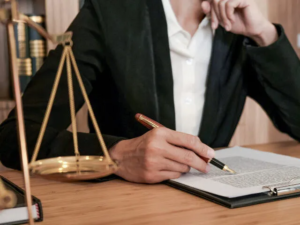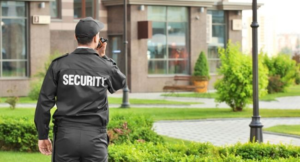Paving
Paving is the process of building flat, sturdy surfaces using a variety of materials. Popular choices include concrete, bricks and stones.
A good paving surface requires a strong base layer and proper compaction. This helps it stand up to heavy traffic and other external elements like weather conditions. The base layer also helps prevent issues like alligator cracking. Contact a Paving Companies Summerville SC now!

Paving provides a powerful curb appeal boost to homes, businesses and other facilities. A beautiful driveway creates a positive first impression and adds value to the property, while a well-executed walkway or front entry paved with stone or brick provides a classic, timeless aesthetic. With a wide variety of materials available, there is sure to be a paving solution that suits any style and budget.
A lush lawn and bountiful garden beds are a cornerstone of curb appeal, but there are a number of other curb-appeal ideas that can take your home to the next level. For example, adding a meandering paver path with a few steps to the front door creates a welcoming entrance that’s easy on the feet and eyes. A DIY trellis topped with a climbing flowering vine is another easy and budget-friendly way to add shape and color to the garden.
Upgrading steps, front stoops, porch floors or patios is a simple and affordable curb-appeal idea that can make a big difference. Whether it’s a full renovation or an incremental update, tiling or laying new concrete steps can transform the look of a home and set the tone for the rest of the outdoor space. Adding a planter filled with flowers around the mailbox or at a roadside intersection is an inexpensive and eye-catching way to welcome visitors to the home.
Durability
Paving is a crucial element of construction, providing a sturdy foundation for safe and functional built environments. While the upfront costs of paving materials and installation may seem high, investing in durable concrete and ensuring quality workmanship will diminish the need for costly repairs or early replacements over time, thereby improving overall financial efficiency.
The durability of a paved surface depends on several factors, including the type and volume of traffic, weather conditions, and the quality of the material and its markings. Maintaining a thorough understanding of these considerations will facilitate accurate budget planning, optimizing the long-term performance of a paved infrastructure.
When comparing different paving options, the most suitable for a project will vary according to its specific needs. For example, while standard concrete is lauded for its average durability, reinforced variants incorporating steel rebar or mesh offer enhanced strength and resistance to cracking, significantly extending the lifespan of a paved surface. Other specialized options include pervious concrete, designed for water permeability to reduce runoff, and green paving, formulated with recycled materials and biodegradable additives.
While a paved surface’s durability is dependent on its materials, environmental sustainability also plays a significant role. Selecting environmentally conscious concrete mixes and adherence to best paving practices promotes greater sustainability, while maintaining the integrity of the pavement’s structural components. Incorporating recycled glass and slag cement into concrete mixes is an effective way to further minimize the reliance on natural resources and underscores a commitment to eco-friendly construction principles.
The longevity of a paved surface can also be augmented through a proactive maintenance strategy that includes regular inspections and timely interventions. Incorporating technological tools like infrared imaging and ground-penetrating radar will empower maintenance teams to identify underlying issues before they escalate, dramatically enhancing the lifespan of a paved surface.
Exploring new paving materials and technologies is an excellent way to enhance the durability of existing infrastructure. Advances in concrete formulation and paving methods promise improved longevity and increased environmental resilience, enabling stakeholders to create sustainable and functional built environments that will stand the test of time.
Easy Maintenance
In construction projects, paving is the final phase of work and usually includes concrete curb and gutter, sidewalks, and asphalt roadway. For small backyards and rooftop terraces, Todd Haiman recommends porcelain and tumbled travertine pavers that “clean well with a power wash once or twice a year.”
Paving is an important investment for the overall look and feel of a property. It is versatile and highly durable and can be installed in a variety of materials. While paving and asphalt have their pros and cons, both require regular maintenance to preserve their quality and integrity. This maintenance includes periodic cleaning, resealing, and repair to prevent damage and prolong the life of the surface. This allows for early detection of any issues and reduces the need for costly repairs.
Environmentally Friendly
Paving involves laying down a layer of durable material to create an area that is safe and navigable for cars, pedestrians, and other forms of transportation. It is an essential element of road and bridge construction as well as building sidewalks and driveways. However, traditional paving materials like asphalt and concrete have significant environmental drawbacks. They have high carbon footprints, contribute to the urban heat island effect by absorbing and holding heat, and can lead to stormwater runoff that carries pollutants into nearby bodies of water. This has led to a rise in demand for eco-friendly paving options that provide durability and safety while minimizing impact on the environment.
Many of today’s paving solutions are made from recycled or sustainable materials to reduce their impact on the environment. For example, asphalt incorporating recycled tires helps to reduce waste and conserves natural resources, although it does require energy-intensive production processes. On the other hand, green concrete is made with fly ash or slag cement to reduce its consumption of natural resources and emissions during manufacture. Additionally, permeable pavers help to manage stormwater and reduce runoff while promoting plant growth.
In addition, many paving materials can be recycled after use to minimize landfill waste and the need for virgin materials. For instance, asphalt can be repurposed as a base layer for new roads or parking lots, while recycled concrete aggregate can be used to make new paving materials. Additionally, reclaimed pavers and stone can be reused for landscaping purposes or crushed and used as an alternative to traditional gravel.
Incorporating environmentally friendly paving materials into infrastructure projects requires an investment of time and resources, but the long-term benefits are well worth it. By prioritizing material innovation, efficient construction practices, durability, and recyclability, stakeholders can reduce the environmental impacts of pavements and support global efforts to mitigate climate change.





